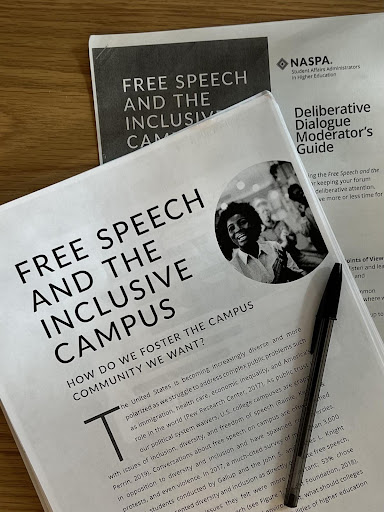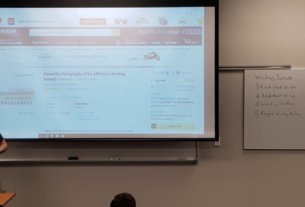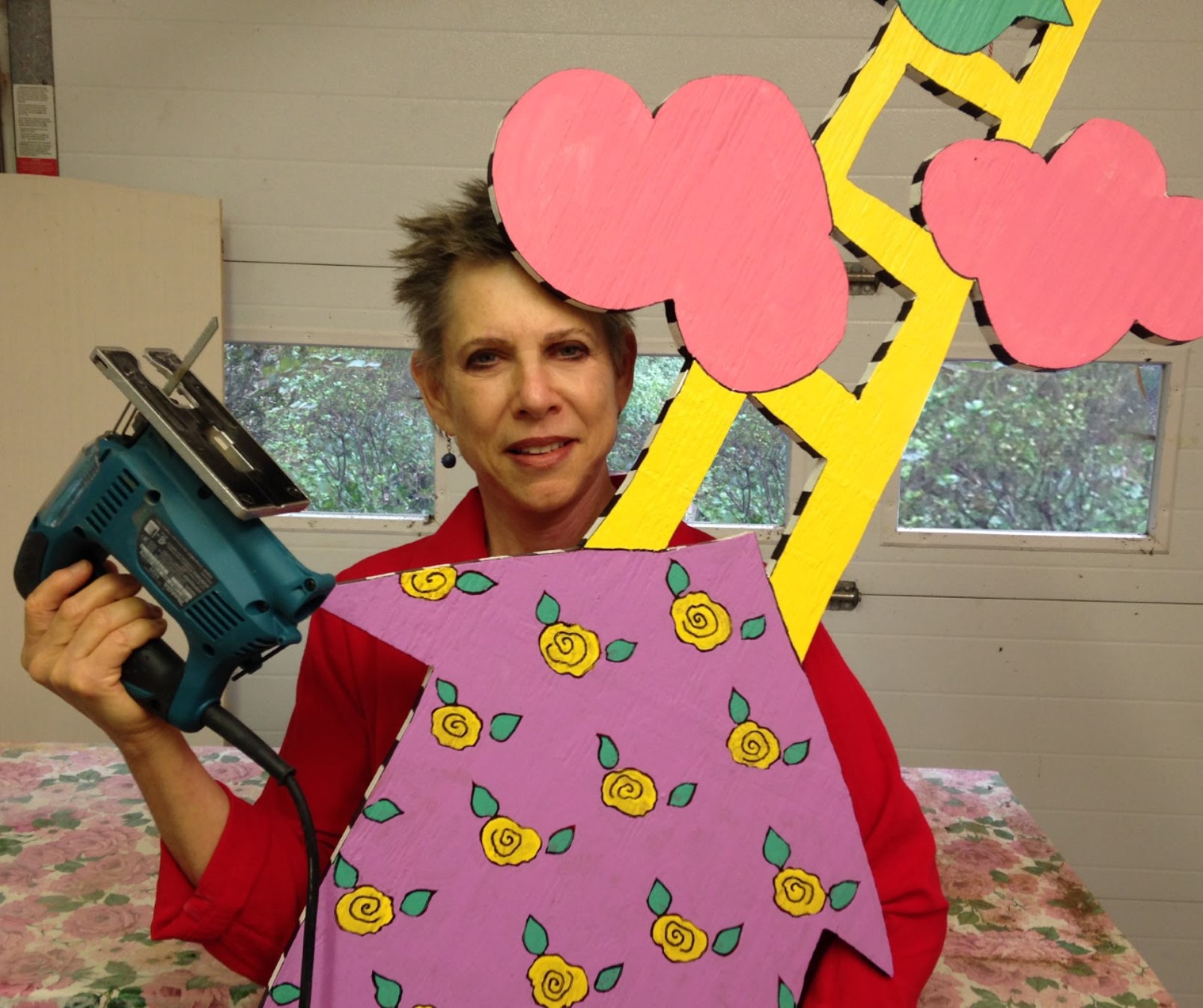Deliberative Dialogue Fosters Democracy at PVCC and Beyond
On March 21, students, professors, and administrative staff gathered to participate in a Deliberative Dialogue together. Part of this experience involved learning effective communication with emphasis upon seeking common ground. While previous dialogues have involved topics like gun control in the United States, healthcare, and an abundance of other pressing current topics, the recent dialogue focused on freedom of speech on college campuses and, innately, addressed mitigating harm on campuses. This topic emphasized that some forms of free speech may involve hate speech, which participants learned is a protected form of free speech in the United States, despite the damage it can cause to culture and society in a broader sense.
The opening of the dialogue, led by PVCC Professor of English Jennifer Koster and Director of Library Services Crystal Newell, addressed the format of the event and how participants were expected to proceed in their deliberation of the issue. Next, participants split into small groups to dive into a discussion that incorporated their own experiences and knowledge, delving deeper thanks to descriptions of solutions and their effects.
Among the three solutions, there was a common theme: balancing the protection of students and constitutionally-assured access to freedom of speech and expression. The proposed solutions were nuanced in nature.
As the discussions continued, it became evident that the goal of deliberation is not to come up with a definitive answer to a difficult issue. Rather, deliberation is used to better define a previously overgrown path of understanding, shaping newfound understandings of needs, personal stakes, and unifying themes among participants whose experiences may otherwise differ greatly. Koster and Newell urged participants to identify the solution that best encompassed the results of the deliberation among each group. Next, the groups reunited to discuss the outcomes of their discussions.
During this experience, I had the honor of leading one of these deliberation groups. My group spent time discussing ourselves. In our group, PVCC President Dr. Jean Runyon aided in our decision-making, joining us as a peer and sharing her perspective, describing the ways in which protecting and fostering diversity within the campus community sits at the core of her role as president.

We pondered the three outcomes while incorporating our own identities into our conversation. Why did this issue matter to us? Why did some hypothetical solutions or outcomes matter to us more than others? What did this indicate about our individual identities? We contemplated our stake and found common ground to unify us further as we moved through our reflection on the difficult issue at hand. At the start, we split into homogenous groups made up of many identities that were acknowledged and valued. Once we reunited as one large group, we discovered that other groups had shared both our paths in our discussions and our feelings on the issues at hand.
It is evident that students want to occupy educational spaces wherein their thinking, exploration of new ideas, and discovery of self are uninhibited but simultaneously protected from harm. The deliberation groups collectively agreed that any enabled manifestations of hatred or violence on college campuses are inherently oppositional to the fundamental purpose of an educational institution.
This experience shed new light on the importance of students’ input on the function of their college. It also illuminated the power students hold in decision-making. Being able to deliberate a complex issue alongside faculty and administrators allowed both sides to discover how issues uniquely impact us all, based upon our interconnected roles within a system.







